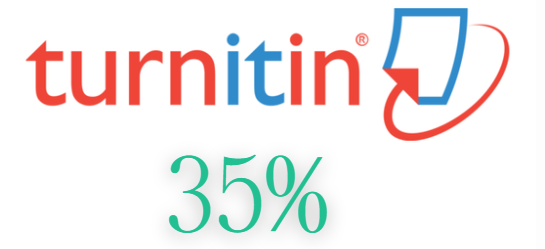The Contribution of the Learning Environment to the Social and Emotional Intelligence of Elementary School Students
Keywords:
Child Development, Learning Environment, Social Development, Emotional Development, Elementary School ChildrenAbstract
The social and emotional development of children in primary school is very important as it influences their ability to interact with others, manage emotions, and form a healthy mindset. One of the main factors affecting this development is the learning environment. A supportive environment, both physically, socially, and psychologically, can have a significant impact on children's development. This research aims to examine the influence of the learning environment on the social and emotional aspects of children in primary school. The method used is a quantitative approach through surveys, observations, and interviews involving students, teachers, and parents regarding the conditions of the learning environment at school and at home. The research results show that factors such as a positive relationship between teachers and students, adequate learning facilities, and emotional support from family have a significant relationship with the development of students' social and emotional skills. These findings emphasize the importance of creating an inclusive and safe environment to support children's overall development. Based on these results, it is recommended that educators and parents pay more attention to environmental elements that can influence children's social and emotional development in elementary schools.References
Berríos, R., Lemos, V., & Fernández, J. (2021). Emotional education and socio-emotional competencies in primary education: A review. Educational Psychology, 41(7), 829–847. [https://doi.org/10.1080/01443410.2021.1898593](https://doi.org/10.1080/01443410.2021.1898593)
Blom, L. C., & Farrell, L. A. (2021). The impact of teacher-student relationships on academic and social outcomes in primary school settings. Journal of Educational Research, 114(2), 132–144. [https://doi.org/10.1080/00220671.2020.1795384](https://doi.org/10.1080/00220671.2020.1795384)
Broom, A. (2021). Methods in social research: Qualitative and quantitative strategies for contextual data. Sage Publications.
Cappella, E., & Kim, H. Y. (2022). The significance of emotional support in urban classrooms: Effects on students’ engagement and peer relationships. American Educational Research Journal, 59(3), 567–597. [https://doi.org/10.3102/00028312211039762](https://doi.org/10.3102/00028312211039762)
Caridade, S., Sousa, H. F. P., & Dinis, M. A. P. (2020). Parental engagement and emotional adjustment of school-aged children. European Journal of Education Studies, 7(2), 1–10.
Crosnoe, R., & Benner, A. D. (2021). The family-school connection and children’s emotional development. Annual Review of Sociology, 47, 121–139. (https://doi.org/10.1146/annurev-soc-090320-114837).
Denham, S. A., Bassett, H. H., & Zinsser, K. (2020). Early childhood teachers as socializers of young children's emotional competence. Early Childhood Education Journal, 48(1), 5–16. https://doi.org/10.1007/s10643-019-00977-4
Domitrovich, C. E., Dusenbury, L., & Weissberg, R. P. (2022). Social and emotional learning in schools: From programs to strategies. Educational Psychologist, 57(1), 1–16. (https://doi.org/10.1080/00461520.2021.2007336).
Hughes, J. N., Im, M. H., & Wehrly, S. E. (2020). Parent involvement and children’s socioemotional development: A longitudinal study. Developmental Psychology, 56(3), 453–468. (https://doi.org/10.1037/dev0000881).
Jones, S. M., Bailey, R., Brush, K., & Kahn, J. (2022). Advancing adult SEL competencies to support student development. The Future of Children, 32(1), 79–98.
Kumar, M., et. al., (2013). Business research methods. Oxford University Press.
McClelland, M. M., Tominey, S. L., & Schmitt, S. A. (2021). Self-regulation in early childhood: Integration of emotion and cognition. Child Development Perspectives, 15(1), 3–9.
Oberle, E., Domitrovich, C., Meyers, D., & Weissberg, R. (2020). Establishing systemic social and emotional learning approaches in schools: A framework for schoolwide implementation. Cambridge Journal of Education, 50(5), 593–612.
Patton, M. Q. (2015). Qualitative research & evaluation methods (4th ed.). Sage Publications.
Schonert-Reichl, K. A. (2023). Emotionally intelligent schools: Creating systemic SEL frameworks. Educational Leadership, 80(5), 46–52.
Taylor, R. D., Oberle, E., Durlak, J. A., & Weissberg, R. P. (2020). Promoting positive youth development through school-based SEL interventions: A meta-analysis of follow-up effects. Child Development, 91(1), 207–224. (https://doi.org/10.1111/cdev.13281).
Wang, et al. (2018). Measuring student engagement and learning environments: Psychometric validation of LEQS. Educational Psychology Review, 30(3), 577–596. https://doi.org/10.1007/s10648-017-9424-6
Weissberg, R. P., & Durlak, J. A. (2021). Social-emotional learning: What the research says. Educational Leadership, 78(6), 34–39.
Weissberg, R. P., Domitrovich, C. E., & Dusenbury, L. (2023). Transformative SEL for equitable outcomes. Equity & Excellence in Education, 56(1), 7–21.
Yoder, N., & Rimm-Kaufman, S. (2021). Teacher practices and student outcomes: Emotional support, engagement, and achievement. Journal of Educational Psychology, 113(2), 231–247.












